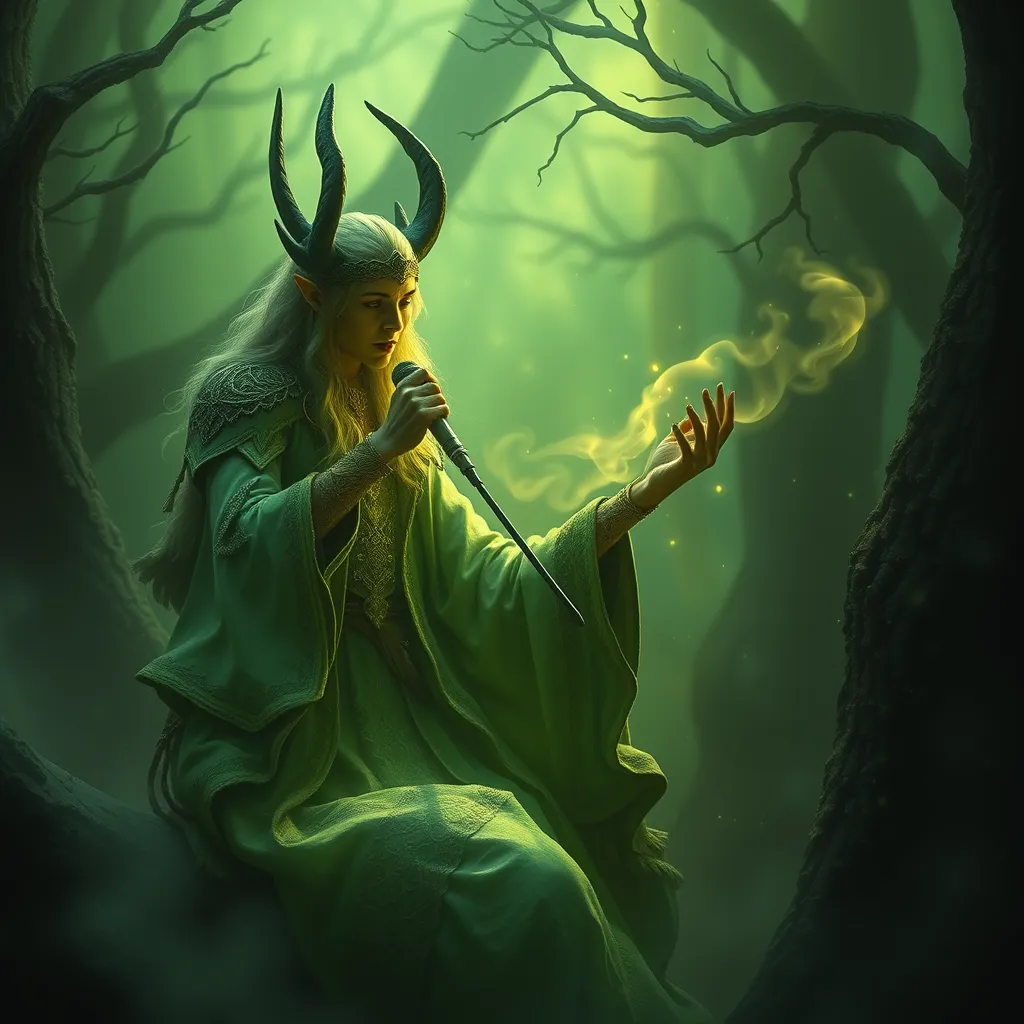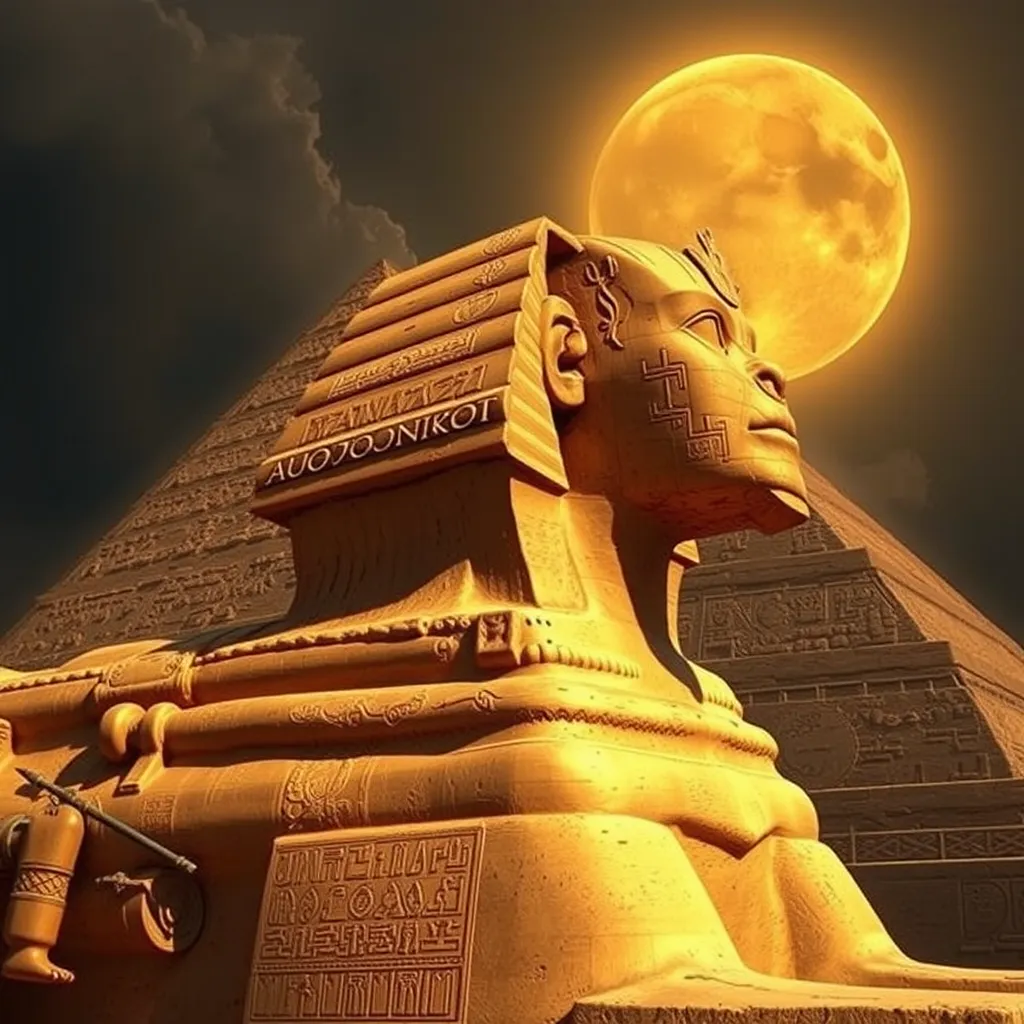The Elven Bard: The Power of Music and Song in Mythical Elven Cultures
I. Introduction
Elven culture is often depicted as ethereal and deeply connected to the natural world, with rich traditions that celebrate beauty, wisdom, and harmony. Within this intricate tapestry, the role of the bard stands out as a bridge between the realms of music, magic, and storytelling. The elven bard is not merely a musician; rather, they are a vital component of elven society, responsible for preserving history, conveying emotions, and influencing the very fabric of culture. This article explores how the elven bard embodies the profound connection between music, magic, and storytelling, shaping the history and culture of elven communities.
II. Historical Context of Elven Bards
The origins of the elven bard can be traced back to ancient mythologies and folklore, where music was often seen as a divine gift. Throughout various elven cultures, the bardic tradition has evolved, adapting to the unique characteristics of each society. Historical records and legends highlight the significance of bards in various elven realms:
- Origins in Mythology: Bards were often depicted as magical beings, capable of enchanting listeners and influencing events through their songs.
- Evolution of Tradition: Over time, the bardic role expanded from mere entertainers to revered historians and advisors, often serving as the voice of the people.
- Famous Elven Bards: Legendary figures such as Lúthien Tinúviel and Daeron of Doriath are celebrated for their contributions to elven lore, inspiring generations with their music.
III. The Cultural Significance of Music in Elven Societies
In elven societies, music serves as a powerful form of communication and storytelling, transcending the limitations of spoken language. Every note and lyric carries deep meaning, often tied to the history and beliefs of the elven people:
- Communication: Elven music conveys emotions that words alone cannot express, allowing for a deeper understanding between individuals.
- Rituals and Ceremonies: Music plays a crucial role in various rituals, from weddings to memorials, enhancing the spiritual experience and connecting participants to their heritage.
- Connection to Nature: Elves believe music mirrors the rhythm of nature, with melodies that echo the sounds of the forest, rivers, and skies, fostering harmony with the environment.
IV. The Art of Bardic Performance
The performance aspect of elven music is vital, as it transforms mere notes into a moving experience. Elven bards are skilled artisans, mastering various instruments and techniques unique to their culture:
- Instruments: Commonly used instruments include the lyre, flute, and harp, each crafted with meticulous care to produce enchanting sounds.
- Techniques: Elven music often features intricate melodies and harmonies, with techniques such as call-and-response and improvisation that engage the audience.
- Conveying Emotion: The performance itself is an art form; a bard’s ability to express emotions and narratives through music can evoke tears, joy, or deep contemplation.
V. The Magical Aspects of Elven Music
In elven lore, music is not merely an art form but a conduit for magic. The relationship between music and magic is profound, with songs often possessing the power to enchant and transform:
- Invoking Spells: Certain melodies are believed to hold magical properties, enabling bards to cast spells or invoke protective charms through their performances.
- Impact on Nature: Elven songs can influence the natural world; for instance, a bard’s tune may encourage flowers to bloom or summon gentle rains.
- Connection to Beings: Music can also resonate with other mythical beings, forging alliances or invoking the spirits of nature in a shared experience of harmony.
VI. Themes and Motifs in Elven Songs and Ballads
Elven music is rich with themes and motifs that reflect the values and experiences of elven culture. Common themes found in elven songs include:
- Love: Romantic and platonic love is often celebrated, with songs that express longing, devotion, and the beauty of relationships.
- Nature: Many ballads pay homage to the beauty of the natural world, highlighting the interconnectedness of all living things.
- Heroism: Epic tales of bravery and sacrifice are told through music, preserving the legacies of heroes and the values they embodied.
Moreover, the use of metaphors and symbolism in lyrics enriches the storytelling aspect, ensuring that elven history and wisdom are passed down through generations.
VII. The Influence of Elven Bards on Other Cultures
The impact of elven bards extends beyond their own societies, influencing various mythical beings and cultures through interaction and collaboration:
- Interactions with Other Beings: Elven bards often collaborated with dwarves, humans, and mystical creatures, creating a rich tapestry of shared musical traditions.
- Cross-Cultural Influences: Elements of elven music have been adopted by other cultures, leading to the fusion of styles and the emergence of new musical forms.
- Modern Representations: In contemporary popular culture, elven bards are often portrayed in literature, film, and games, highlighting their enduring legacy and allure.
VIII. Conclusion
The significance of the elven bard in mythology and culture cannot be overstated. As a vital link between music, magic, and storytelling, bards enrich the elven experience, ensuring that history, emotions, and values are preserved through song. The enduring legacy of music in elven storytelling highlights its power as a unifying force, capable of transcending time and space. In a world where stories shape identities and cultures, the elven bard stands as a testament to the timeless connection between art and life.



